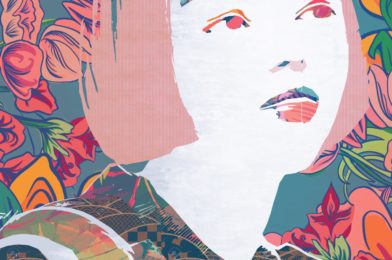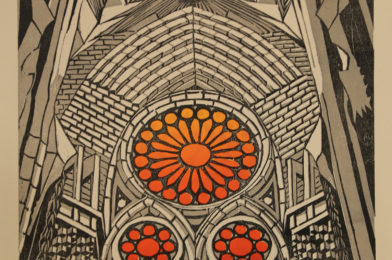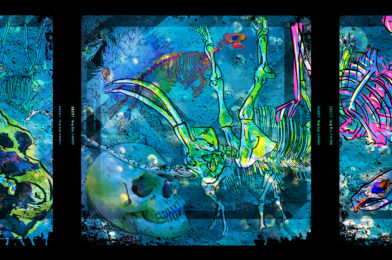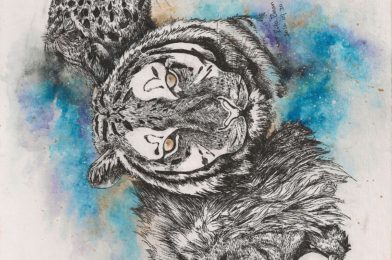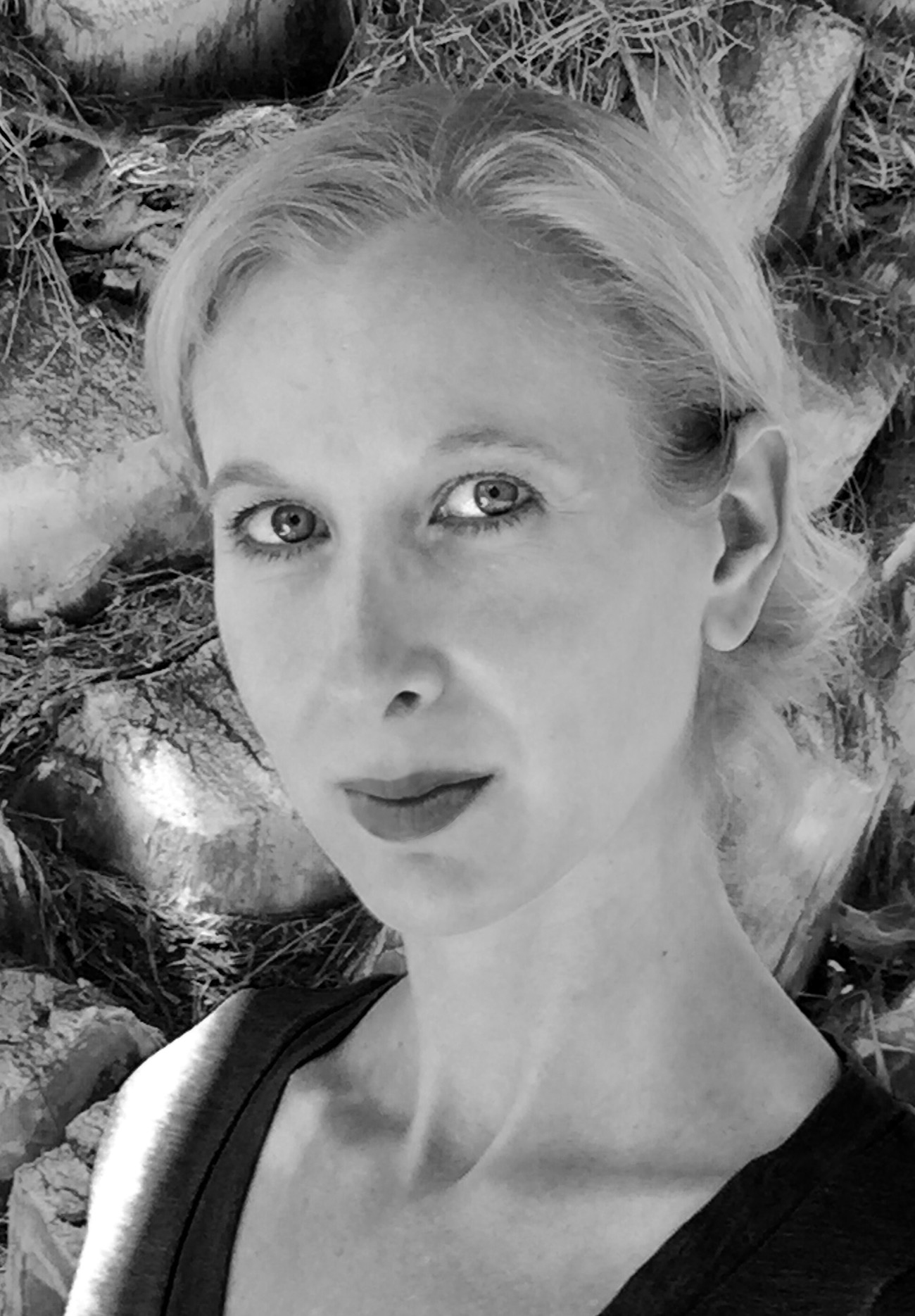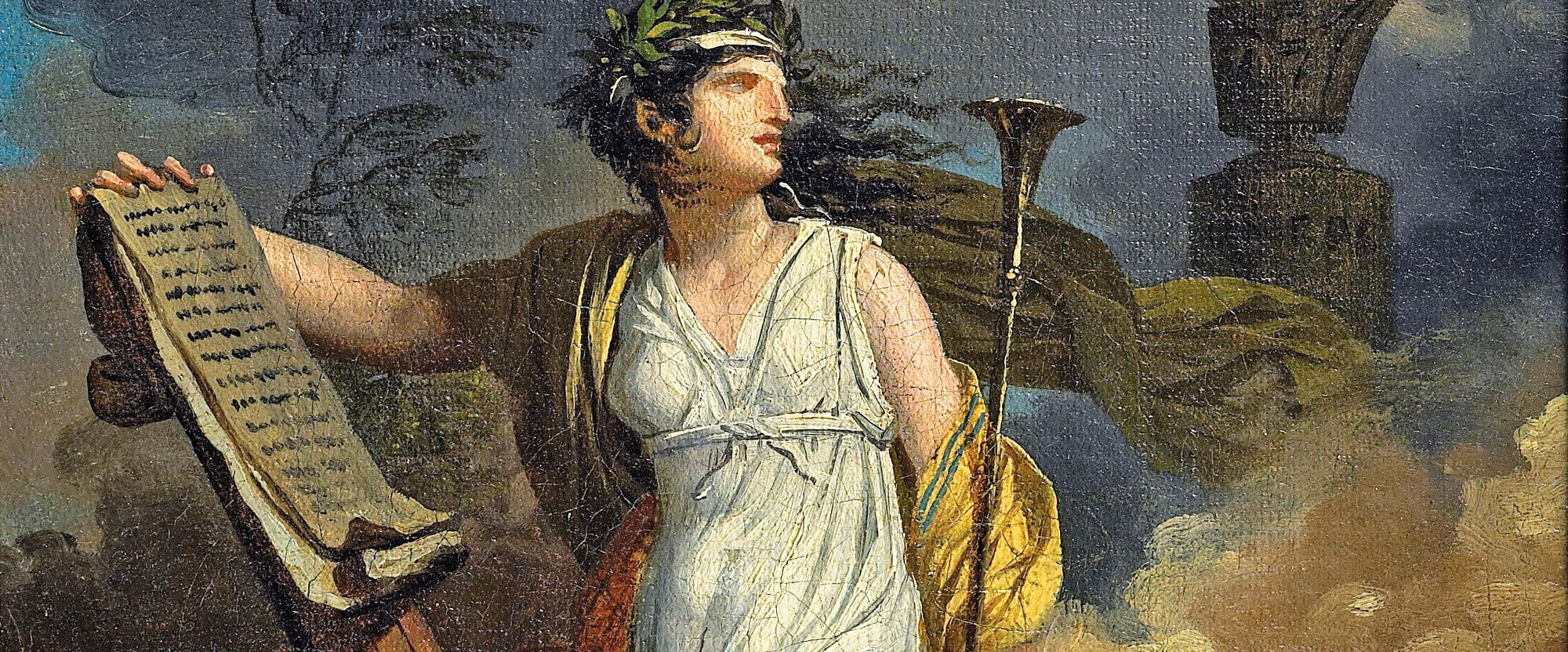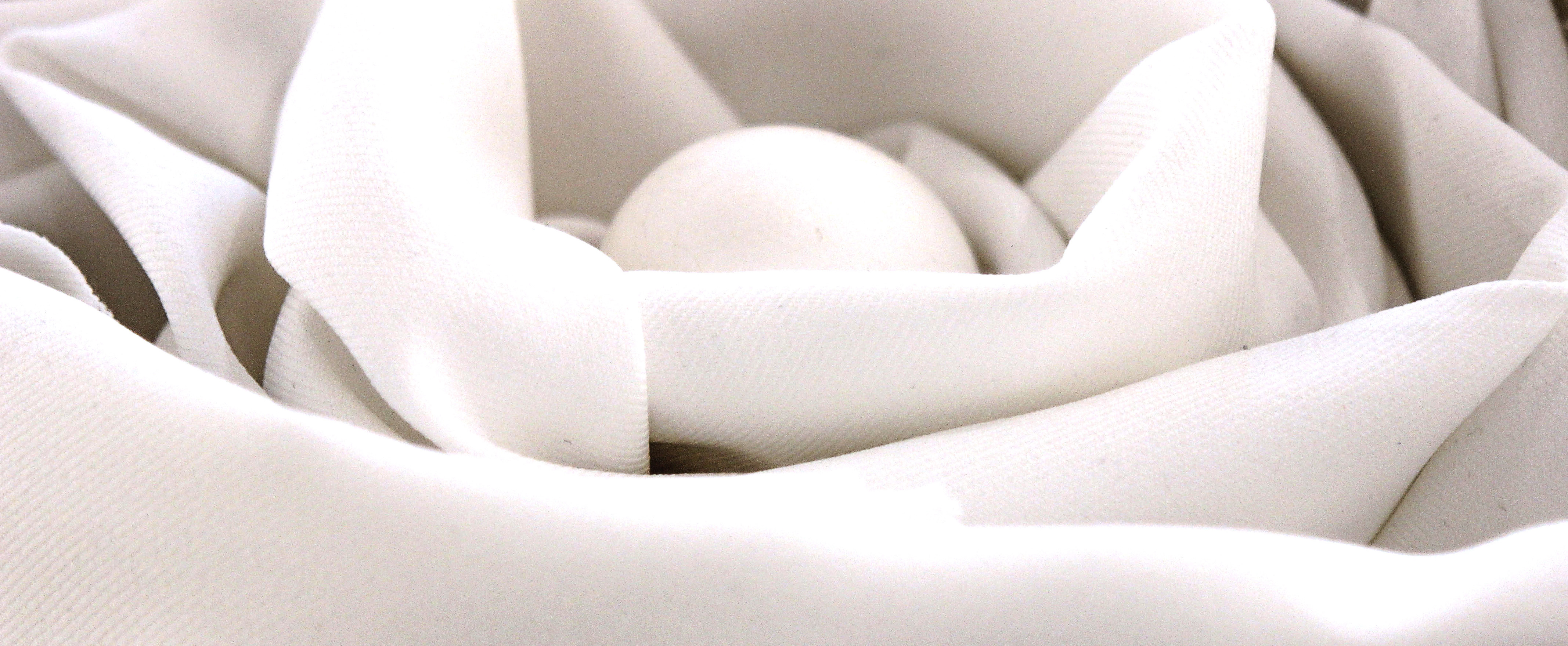Allison Benis-White is a renowned poet from Southern California. She has published three books: Self-Portrait with Crayon (2009), Small Porcelain Head (2013), and Please Bury Me in This (2017). She is currently a poetry professor at the University of California, Riverside.
Q: Have you always written poetry and if so, when did you start writing it?
A: I first started writing when I was sixteen, and it was traditional high school poetry: angst, and, you know, a lot of violence. Then, I had a boyfriend who had an ex-girlfriend who was a writer, and he introduced me to her, and she took me to my first poetry reading in Venice, California, in a place called Beyond Baroque. It was this huge reading for a literary journal, maybe thirty people read, and my life was transformed by hearing that reading. I mean, before that, I had written in some casual way an adolescent writes, but after that reading I was bewitched. I was enamored with poetry, and not so much with the vision of, “I’m going to devote my life to this genre,” but there were much sharper desires to make something on the page that lasted. So, when I started going to college, I began taking literature classes and studying poetry. Poetry’s always been my genre. I wrote one short story in a creative writing class, and it was okay. The experience of writing in fiction—in prose, really, was tedious for me. There wasn’t a lot of pleasure in it. Whereas writing poetry there always was and still is this great energy and excitement and urgency, and a sense of invention. Somehow, for me, writing in prose— traditional prose, because I do write prose poetry— always felt constricting. I don’t know why, exactly, and I don’t know if that will last, but so far I’m a single genre person.
Q: Do you have any advice for young writers?
A: The only advice that I think is useful is to read widely, to be patient, and to try and find your own conviction. Those are the three things that kept me in a space where the work feels alive. Advice is a tricky thing, because everybody’s particular. I guess it’s less advice and more of the things that I hold dear and that have kept me in motion.
Q: What’s your process when writing ekphrastic poems? Have you written other ekphrastic poems [ekphrastic poetry is poetry written in response to other works of art (i.e., paintings, films, other poems, etc.)] inspired by other art?
A: I got this opportunity to go to London by myself, and I was visiting all of the museums I wanted to visit and in one of the gift shops I found this postcard of Degas’ painting, “Combing the Hair.” It’s a young girl, maybe thirteen years old. She has long, red hair, and an au pair is combing her hair. She appears to be in pain–she has curled fists. The whole painting is in reds and oranges, and I was completely enamoured with it. So I bought it, and I brought it home and I set it on my desk a few weeks later. Then, just as a writing exercise I decided to respond to it. I was familiar with ekphrastic poetry, I certainly didn’t know that word, but I knew people wrote in response to paintings. It was a really sort of spontaneous writing exercise, and I found that when I wrote about that painting, I was able to write about my mom leaving when I was very young in a way that I had never been able to do before. I had tried to write about that experience before, but the poems would always end up feeling repetitive, hysterical, and unsatisfying, so I just shoved that topic aside. Somehow, writing in response to that painting facilitated this kind of speech for me. So I tried it again with another Degas painting, and it worked again; I was able to articulate in this really surprising way. I didn’t think this was going to be a book. I was just really happy to be making something that was surprising to me and where I could discover things, so I just kept writing in response to his paintings and it kept working. I was able to go deeper and deeper into stranger spaces and that continued on until I had a manuscript length amount of these poems.
Q: Why Degas for this collection specifically?
A: Why Degas? I didn’t really understand it, I just capitalized on it, and I didn’t study Degas while I was writing these poems. I was just viewing the painting as a common viewer of art. I didn’t want to be an academic that studied the nature of Degas. However, towards the end of this process I did do some research on him, casually, and I found that his mother had passed when he was very young. There were also rumors that he was impotent. Both of those things are interesting to me because he paints so many dancers, that’s his main gig. So, I thought maybe the loss of his mother and the desire and the inner way to talk about stillness… it’s something I’ve relied upon and it continues to be fruitful.
Q: Throughout Self-Portrait with Crayon, you make use of large motifs like abandonment, as well as many smaller motifs. Did these small motifs show up on their own or did you weave them into the pieces purposefully?
A: There was no conscious weaving of themes. The way I wrote the poems was sentence by sentence in this state of meditating on each painting. I tried to allow the language to direct the poem. I was conscious of the themes that were emerging, but I never said, for example, “Oh, I need to braid in this theme.” The themes were so prevalent that, regardless of intention, they were going to reveal themselves. But I tried to be led by the painting and the language versus by the theme or a biographical incident.
Q: When you were writing this collection, were you focused more on the music or the narrative?
A: The music. Almost 100%. I mean I also think the music, the language, was inspired by the meditation on the paintings. And I wrote them sentence by sentence, via the ear. The first line or sentence would dictate, sonically, ultimately, the second line. And when I say sonically, I don’t think that it’s entirely accurate to say that was the driving force, because of course there’s image, and of course there’s pattern, and the narrative, etc. But I think the thing is, especially with prose poetry, is that the ear has to be at work, because you don’t have the luxury of breaking the line, so to keep it buoyant, the ear really has to be awake. As for the narrative, there are very few truly narrative moments in the book, maybe five or six. The narrative and the music and the imagery and the connection between the speaker’s mind and Degas’ mind, that is what I think is driving the book.
Q: How did you know you were done with the collection, and what was it like going through the contest system?
A: I knew it was finished because I continued writing these pieces and I started feeling like I was repeating myself, that I wasn’t discovering anything new, or whatever I had discovered I had said better somewhere else. That happened three or four times in a row, and I started to think, “Hmm, I think this is winding down, I think I have expressed myself as completely as I possibly can using this tactic.” And another practical signifier was that once I hit about 48 pages, which is usually the minimum page requirement for the contest system, I was like, well, if I start repeating myself or losing steam at this point, it’s okay to stop, because I have an entire manuscript. In other words, I would’ve been very sad if at the twenty-fifth poem, it had stopped working— which I would’ve accepted, but I was fortunate to have written enough to be manuscript length.
And the contest system, it’s huge now. There are many reputable presses that have blind submissions, so one would submit their manuscript via Submittable, usually with a fee of $15-25, so it’s a little expensive, and the idea is that there’s a group of screeners who whittle the manuscripts down to 20-25 manuscripts which get sent to a final judge, usually somebody of note, and if your manuscript is selected you usually get a small monetary prize– something like $1000, and a publication contract. This is a really common way that poets get published nowadays, because poetry’s not a commodity, you don’t have an agent, no publisher is going to make a bunch of money off of your poetry collection. It’s a way for unknown writers to get published, to provide some income for the press, and to create a space for newer writers. Very rarely are poets discovered, or have the luxury of having an agent going around trying to get editors to notice your work. I published through the contest system for my first book, and for my second book, and now the press that published my second book has agreed to publish my third book. So, ostensibly, I have a press now, which is the dream of any writer, to have a press that supports you and wants to publish you. I think my beginning is a very common beginning for modern poets.
Q: Do you find yourself editing as you go or writing and then revising?
A: I’ve done both. With Self Portrait, I actually edited as I went along; I wanted each line to have a sense of completion before the next line, and so on. It was a tedious process. I remember on a good writing day, I would write three good sentences in a row. And that was very taxing. And then the next day, I would go back to the same piece and write three or four more sentences. Very rarely would it tumble down the page, would I complete a poem in one sitting. It was usually many, many sittings, one sentence at a time. But then, more recently, I’ve periodically written more quickly, understood that all of the raw material was there, and then went back and edited acutely. So I’ve done both, but with Self Portrait with Crayon, it was very tedious sentence by sentence, word by word process, and I just couldn’t write them any other way. But with more recent work, I could sort of streamline.
Q: Have other poets inspired your writing, and do they differ from the poets that you read?
A: I think the poets I read are the poets that inspire me. The initial poets that inspired me were Sylvia Plath and Anne Sexton. I found them when I was very young, as many young people do, and they still continue to inspire me, specifically Plath; her work continues to burn through me. Later, when I was in college, I found Louise Glück, specifically the book The Wild Iris, and that book also is the gold standard for me, still. And then there’s another book that is less well known, by this woman named Killarney Clary, called Who Whispered Near Me. It’s a book of prose poems; I think I discovered it in graduate school. That book changed me and gave me a vision for something I wanted to do. I think Plath, Glück, and Clary are the three writers that continue to inspire me and give me the ambition to write something with that kind of heartbeat.
Q: Can you tell us about your mother and how she inspired this book?
A: Sure. So, my mom left me and my father sometime between when I was a year/year and a half old. Of course, I was very young, so I don’t remember any of this. As I was growing up, we never talked about her. I didn’t know where she was. There was no reason given, I just knew that she was gone. I knew she wasn’t dead, I knew she was alive, although nobody talked about it. I just grew up with my father. Then, just before I turned eight, she called, and a few weeks later, she showed up, and I met her. That’s the language I use, because I didn’t remember her. After that, my dad ended up having a nervous breakdown and going to a mental hospital so I ended up living with my mother for a few years. So I did get to know her in that way, but after that I ended up moving back in with my father, and she’s always lived up north, in Northern California, so… We’re not close. We have a relationship. We talk on the phone periodically. I think the question is always why? Why did she leave, why did she come back, what’s going on? I still don’t have answers to those questions. I still don’t fully understand.
Q: Has [your mother] read Self Portrait with Crayon?
A: She has! She wrote me a letter and said something to the effect of: Her approach to reading the book and her experience of reading the book allowed her to be proud (of me) rather than be ashamed (of herself). So, that was interesting, and I appreciated that. I did call her, when I found out the book was going to be published, and told her, “FYI, this is the anchoring subject matter of this book,” and that it wasn’t disparaging her. I didn’t write the book to disparage her, but rather I was writing from this enormous silence and mystery that has characterized my life. But, I did want to give her the dignity to know. And, I mean, it’s poetry, it’s not like we’re going on Oprah discussing this. So yeah, there is that connection. She has read what I have made. But there’s an endless mystery to my mother, and me writing that collection didn’t resolve it.
Q: When you finished Self Portrait With Crayon, what was it like to start a new collection?
A: I don’t remember exactly. I remember being relieved when it was done. And I remember organizing it, which was an extraordinary task for me because I didn’t write them in a sort of sequence, so I had to truly think about how the poems were going to unfold, which was very challenging, so I remember a feeling of relief. My friend had committed suicide about six months before I finished Self Portrait with Crayon, so I already had this other terrible grief in my life, and I knew, because that’s how I process being alive, I knew I wanted to put pen to page in some way, responding to my friend’s death. So I didn’t really grieve Self Portrait, because I had this other grief. I think it took about a year to really find a way to write about my friend’s death, and that’s what became my second book. So that’s my memory of letting go of Self Portrait: I felt a sense of relief, and then tried to find a way back in.
Tagged : Allison Benis White / creative / creative writer / Creative Writing / idyllwild / Idyllwild Arts / Idyllwild Arts Academy / Interview / parallax / Parallax Literary Journal / publishing / slider / write / writer / writers / writing
